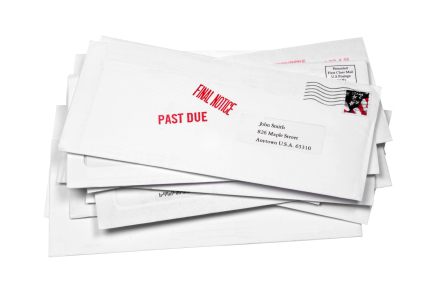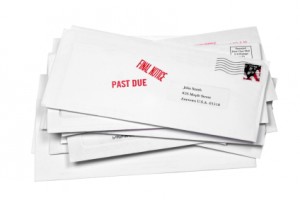Paying your bills on time each month is one of the most important ways to manage your credit score, not to mention an essential part of being financially responsible. But if you have made some payments after the due date in the past, you may wonder if that’s going to affect your credit score. The answer is: yes.
Any missed payment − from parking tickets to medical bills − could drop your credit score by 100 points or more. Many factors are used when determining your credit score, but payment history is the largest and makes up 35% of your score. Since lenders use your credit score to decide if they will lend you money or give you credit, the logic is that how you have repaid your debts in the past is a good indicator of how you will pay your bills in the future.
But not all missed payments are equal when it comes to your credit score. The impact that missing a payment has on your score depends on a variety of factors.
What Was Your Credit Score Before the Late Payment?
If you had a high credit score before the missed payment, then the reduction in your score will be higher than if you had mediocre or poor credit. 700-plus scores can be dropped 100 points or more with a missed payment.
How Late Was the Payment?
Since the creditor cannot send the late payment information to the credit score agency before it is 30 days late, payments must be at least 30 days late to affect your score. Occasional late payments between 30 and 60 days late do not typically cause lasting damage to your score, once they are paid and no longer reported on your credit report as outstanding. But a pattern of bills paid 30 to 60 days late will have a negative impact.
A missed payment over 90 days late will cause your score to take a big hit. One 90 day late payment will damage your credit for up to seven years.
When Did the Missed Payment Occur?
MyFICO.com, the consumer division of FICO, lists how recently the late payments occurred as one of the criteria for factoring them into your credit score. “So this means that a recent late payment could be more damaging to your FICO score than a number of late payments that happened a long time ago,” the website states.
Was the Payment Charged Off or Sent to a Collection Agency?
When a bill is significantly overdue, a company will send the bill to a collections agency. Another option is that that the company will “charge off” the payment, writing it off as loss because it is uncollectible. According to myFICO, “If you continue not to pay your debt and your creditor either charges it off or sends it to a collection agency, it is considered a significant event with regard to your score and will likely have a severe negative impact.”
Update: Have more financial questions? SmartAsset can help. So many people reached out to us looking for tax and long-term financial planning help, we started our own matching service to help you find a financial advisor. The SmartAdvisor matching tool can help you find a person to work with to meet your needs. First you’ll answer a series of questions about your situation and goals. Then the program will narrow down your options from thousands of advisors to up to three registered investment advisors who suit your needs. You can then read their profiles to learn more about them, interview them on the phone or in person and choose who to work with in the future. This allows you to find a good fit while the program does much of the hard work for you.

